The Star Wars prequels suck, but The Clone Wars TV show (almost) justifies them
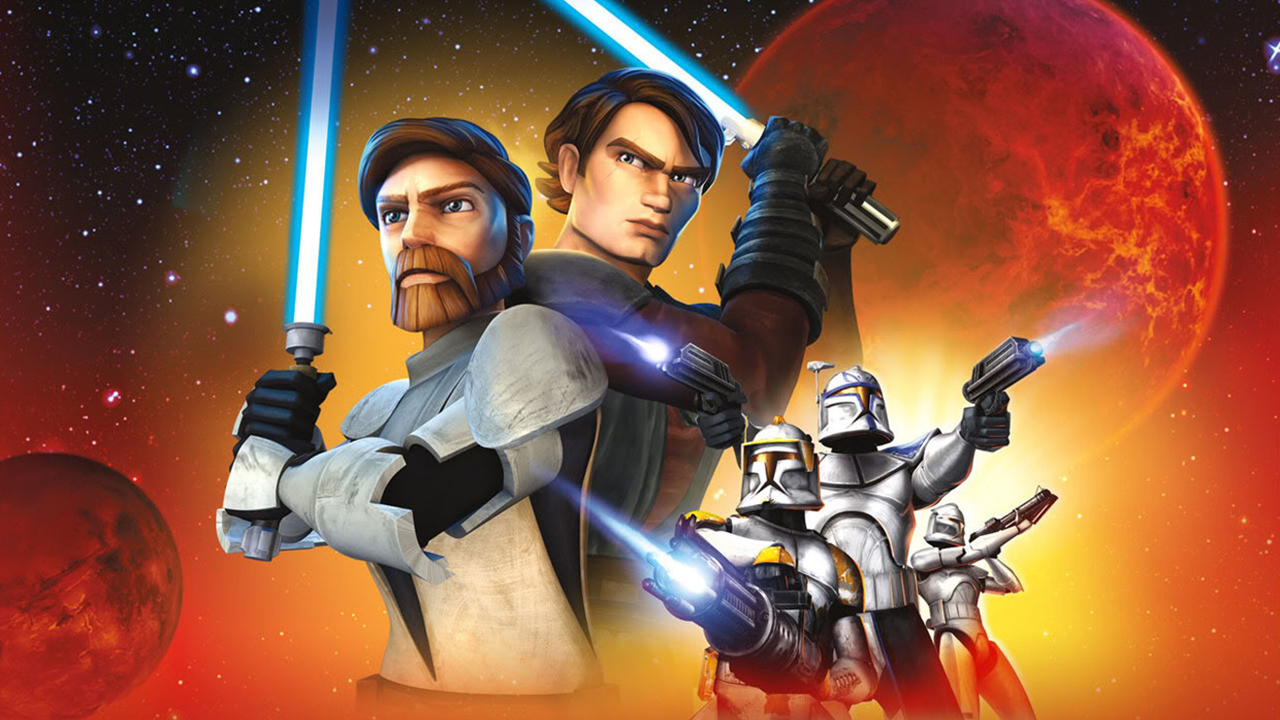
Riddle me this dear reader: when does a canon act like an anchor? When a ship flips over? Or a pirating prank goes wrong? When a disposable camera disappoints, or a larger lens wrenches at your neck? Or… how about when a universally-derided prequel series weighs down an otherwise stunning saga? Yes folks, we're actually talking about that kind of canon - i.e. the ability to boast genuine fictional importance within a wider body of work. The spelling was a clue, but I’ll admit I was being tricksy with this one.
Now as far as most force-sensitive fans are concerned, Star Wars Episodes I through III represent much more than just a muddled-up misstep. They're also a continuous annoyance, a midichlorian-spouting, Vader pouting, Phantom Menace of a migraine. That's partly down to the fact that all three films can now lay claim to just as much 'legitimacy' as any adventure of Han, Leia, or Luke. It just doesn't feel right - seeing Yoda reduced to a hyperactive glob of flubber, or knowing that Old Ben Kenobi was really just channeling his abundant gut bacteria, or whatever the hell the Force is now.
Suffice to say that in attempting to expand his universe, both thematically and otherwise (the toy line certainly grew), George Lucas effectively smothered the focused, character-driven, swashbuckling style of his earlier films. Where A New Hope quickly sidesteps issues such as galactic governance (in a single line, no less), Menace, Clones and Sith all spend an inordinate amount of time showing us the tedious underpinnings of a world with which we were already suitably invested.
But this article isn't about bashing the prequels, as tempting as that proposition no doubt is. Instead, what I'm going to talk about here is a project that actually did an awful lot right by the saga - patching up plot holes, creating memorable characters and even, dare I say it, making the pre-Imperial universe feel both alive and exciting.
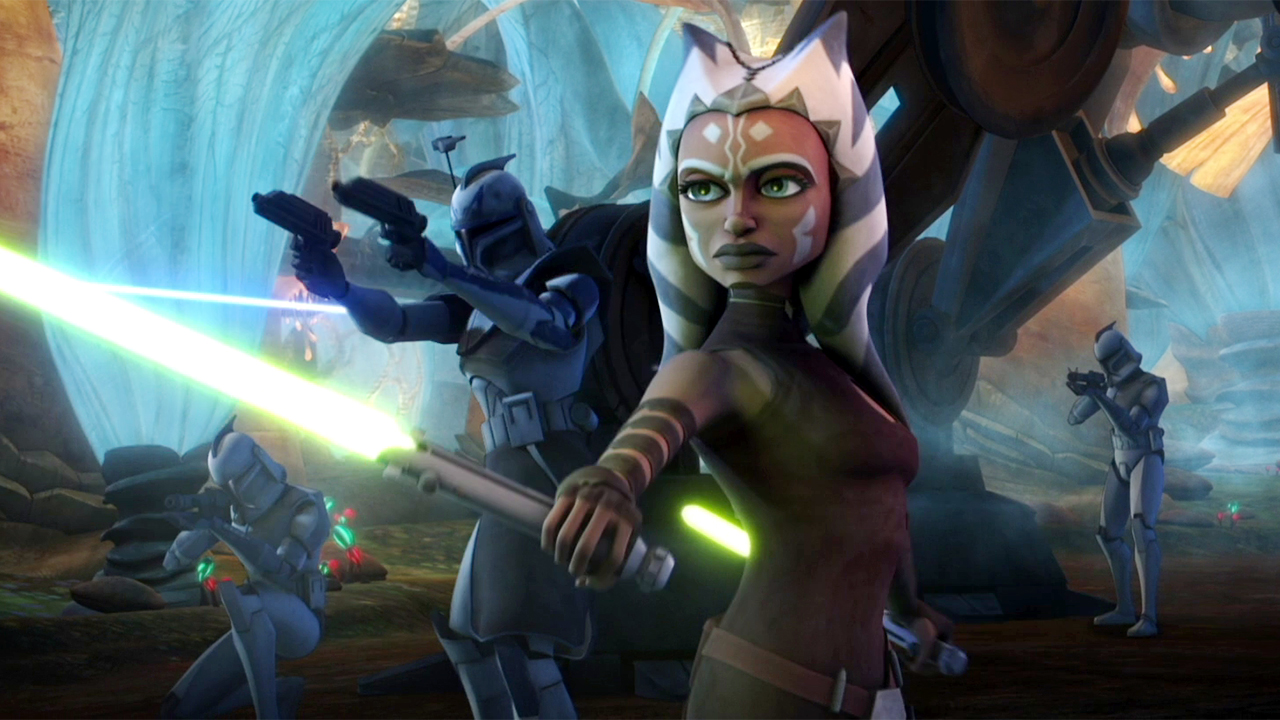
Yes folks, it's The Clone Wars, and yes I do know the show was originally intended for kids (not that that's ever stopped us big kids from indulging in our love of all-things Star Wars). Following a somewhat shaky start to life - you can thank Lucas for combining the first few episodes into an ill-fitting 'launch movie' - the show quickly found its feet, churning out season after season of increasingly mature and oftentimes tremendous action.
Set between Episodes II and III, fans might well have been forgiven for thinking that the show had little room for manoeuvre. After all, we already knew where most of the saga's major players would end up, many of whom hadn't really seemed to have done all that much 'growing' between pictures. This was, without doubt the show's single biggest hurdle - and one that it surmounted with aplomb.
So, how do you create investment in such a 'stop-gap' narrative? The Clone Wars’ answer was to introduce some new characters of its own. Now that approach itself has risks. Wouldn’t it lead to continuity clashes with the films? Or worse yet, reduce said newbies to the status of 'ticking timebombs', all of whom must eventually die prior to the finale? Thankfully, the good folks at Lucasfilm Animation were able to turn this potentially tricky situation to their advantage.
Sign up to the SFX Newsletter
Get sneak previews, exclusive competitions and details of special events each month!
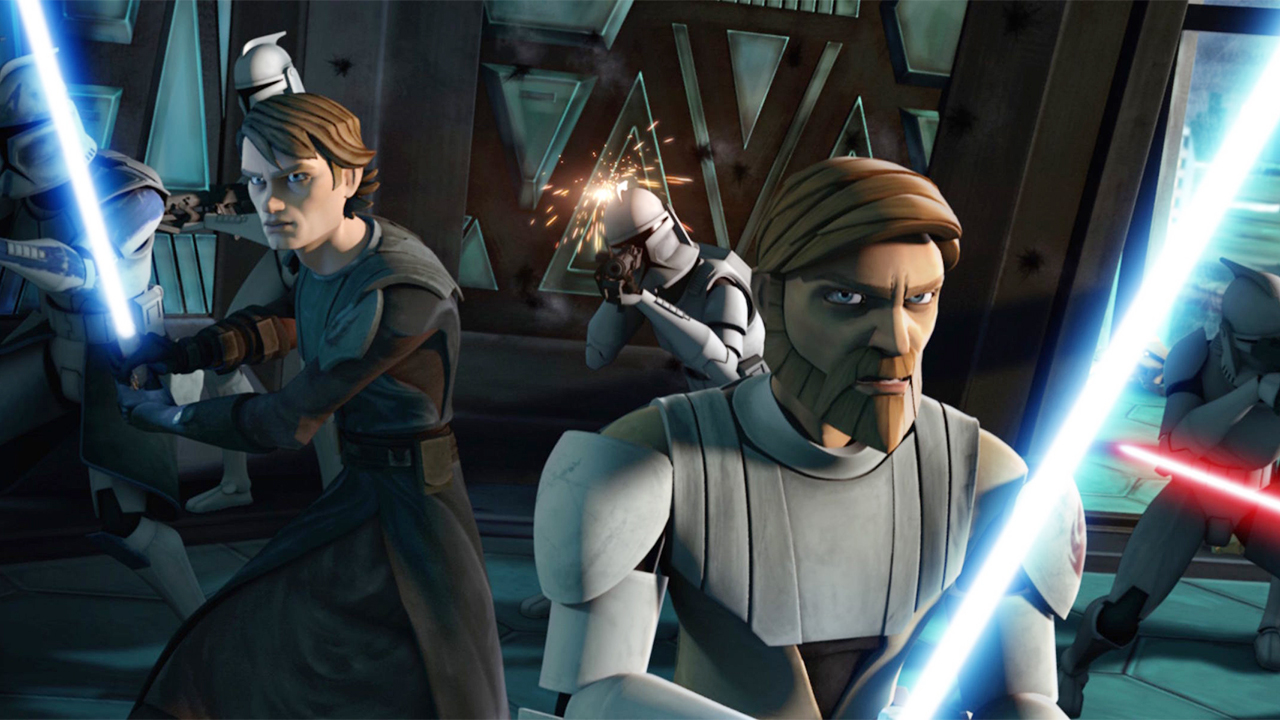
Case in point: Anakin's padawan Ahsoka. Never once mentioned in the movies, and seemingly thrown in at random, Ahsoka's initial appearance only served to aggravate fans. She was canon in the same way that silly comic book retcons are canon (here's looking at you 'Superboy punching reality'). More than that, she was whiny and naïve - both hot-headed and sulky - just an all around misstep for the franchise. Or so it seemed. As the series grew, so did Ahsoka. In time, her fanbase bloomed too. In fact, her character arc is so well handled that viewers began to wonder just what had happened to preclude her from the movies. Was she destined for death, or had she succumbed to the dark side? Slowly, this interim character gains series-wide legitimacy, with the inevitable tragedy of Revenge of the Sith only serving to deepen our connection to her.
And she isn’t alone. The Clone Wars creates a whole host of incredible characters during its seven-year span. Highlights included Cad Bane, the manipulative bounty hunter, Hondo, the ever-practical pirate, and Asajj Ventress, Dooku's witch-like apprentice. Perhaps most impressive of all is the series' dedication to its seemingly tricky clone troopers, an approach that also serves as something of a metaphor for the overall show. Where the movies establish said soldiers as little more than matching tin-men, The Clone Wars works tirelessly to build upon these meagre foundations, and largely succeeds at doing so. Ani's friend Rex really does feel different from his cohorts, just as malformed clone '99' really does elicit our sympathy, and for entirely different reasons than the similarly tragic figure of '5s'.
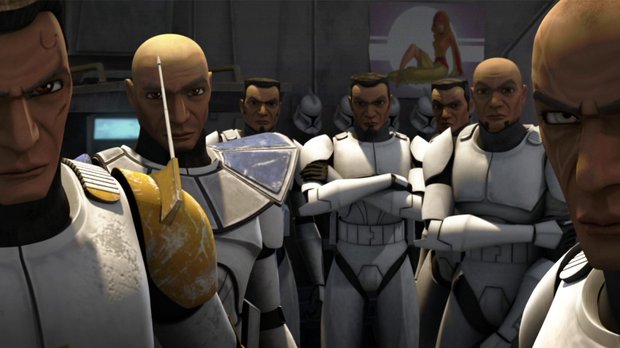
That's not to say that series doesn’t also improve upon pre-existing characters either. Padme, for instance is presented as more of a courageous diplomat here, and less as the baby-making, will-losing, plot-device she is in the films. For his part, Obi Wan is warmer, his actions smarter, though he's also more conflicted. In Satine he has a love interest he can never truly love, their brief time on screen together eliciting greater sympathy for the lonesome Jedi than anything the cinematic prequels ever achieved.
Though it may seem like sacrilege, these narrative flourishes are handled with both delicacy and restraint, unlike Anakin of course, who we finally begin to see growing into the monster he will one day become. It's a slow, increasingly scary process, which again both out-thinks and outperforms the prequel movies in every conceivable respect. Here, the 'good guys' can be bad, just as their enemies sometimes prove sympathetic. Ultimately, it's moments like these, and many, many more, that give credence to The Clone Wars' greatest strength. It contextualises its world not through wooden world-building exercises (here's looking at you Lucas) but through its vibrant cast of characters.
It's by no means a perfect series. Some arcs do indeed come off as childish, while others foolishly attempt to rectify mistakes made by the prequels, rather than simply moving on from them, or deepening our understanding of the major players involved. The resurrection of Darth Maul, for instance, might have seemed like sweet music to some, but felt just a little too forced for me. That said, this is a series that just gets so much so right that it becomes hard to argue with. Yes, the art style may grate on some, though at times it can look absolutely exquisite. Likewise, its action-heavy focus may prove a turn off for others, though if military sci-fi is your thing, you're in for an absolute treat here.
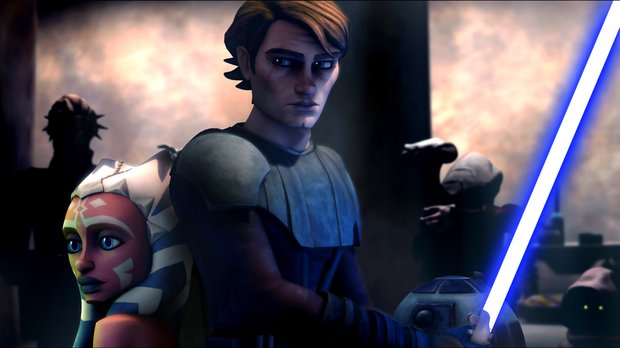
Of course, anyone who follows the show knows that Disney pulled the plug on the series with just two-and-a-half seasons still to go (the team was hurriedly moved on to follow up project, the more kid-focused Rebels). It's a big loss, especially as the show was reportedly gearing up for some of its most exciting, heartbreaking moments yet. Ultimately, The Clone Wars was never truly given the opportunity to completely 'save the prequel saga'. Could it have done so? That's tough to say. It certainly gets close, doing what the films never did by populating the pre-Vader period with meaningful, affecting stories and characters that actually lend it resonance and weight.
But what I can tell you is that, really, the show never needed to save anything. Regardless of its origin, this is some 2500 minutes of blissful, legitimate Star Wars escapism, and the only prequel project to prove worthy of the Star Wars name. Do yourself a favour and check it out. It’s on Netflix right now.



